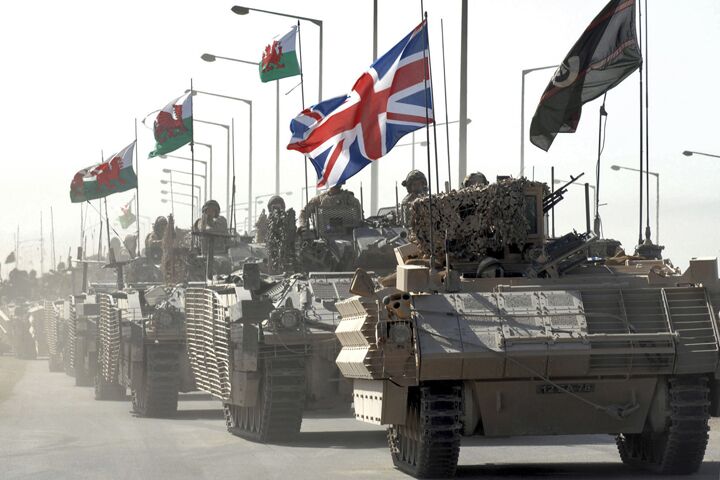
British Troops Leave Basra
Under cover of darkness early September 2, British troops pulled out of their base in Basra, Iraq, as part of a plan to transfer control of Basra Province to Iraqi forces. The troops moved to an airport outside the city, the last British base in Iraq.
Even as British Prime Minister Gordon Brown insists that the Basra exit is a handover and not a retreat, some analysts are describing it as a humiliating withdrawal. The last 550 British troops in Basra had been bunkered down in Basra Palace, with the compound coming under daily rocket and mortar fire. Four and a half years after British troops came to Basra hoping to bring peace and prosperity to the city, the streets had become too dangerous for British soldiers to patrol and they had taken on an increasingly defensive posture.
While the British government may cite strategic factors as being the reason for the withdrawal rather than defeat by Shiite militias, what is certain is that the British—despite the bravery of the British soldiers—did not achieve victory. The Daily Mail reported Monday:
[T]he withdrawal has left the city largely in the hands of warring Shia militias, with the bloody prospect of more killings and kidnappings as they battle for power.
The police, who now take on the task of ensuring law and order, have been heavily infiltrated by militia members. One Army source admitted last night: “We are leaving the Iraqi people to the mercy of our own mistakes. We should have finished what we started, but we have done a runner instead.”
Basra, bordering Iran, is Iraq’s second-largest city and its main port city and oil-production center. The Shia-dominated city has been heavily infiltrated by Iran since Saddam Hussein was toppled, with Shiite extremists largely controlling the city and enforcing Sharia law. One Basra resident commented two years ago, “Basra has really become an Iranian city. I no longer recognize it” (Christian Science Monitor, July 13, 2005).
The vacuum created by Britain’s pullout from Basra will clearly give Iran even further opportunity to increase its power in the area. For over a decade, Trumpet editor in chief Gerald Flurry has pointed to the eventuality of Iraq coming under the control of Iran. For southern Iraq, this is becoming closer to reality. With the exiting of British troops from Basra, one British colonel said that “the fear now was that Shias would try to form a breakaway nation in the oil-rich south. That raised the spectre of ethnic cleansing and vastly increasing the influence of neighbouring Iran” (Daily Mail, op. cit.).
The British withdrawal is also an indication that British support of President George W. Bush in the war on terror is weakening. Upon Brown becoming the new British prime minister, the Trumpet wrote of what course he would likely take:
Like Blair before him, Brown has pledged to reduce troop numbers [in Iraq] when possible—but he may well shift the timetable forward. Whatever the specifics, we can be sure that a Brown-led Britain will by no means become more determined to wage war on terrorism. It is far likelier that we have already seen the strongest days of the U.S.-British anti-terror alliance and British support for fighting Islamist extremism.
Watch for the further drawdown of British involvement in the war on terror and the increasing influence of Iran in Iraq.
